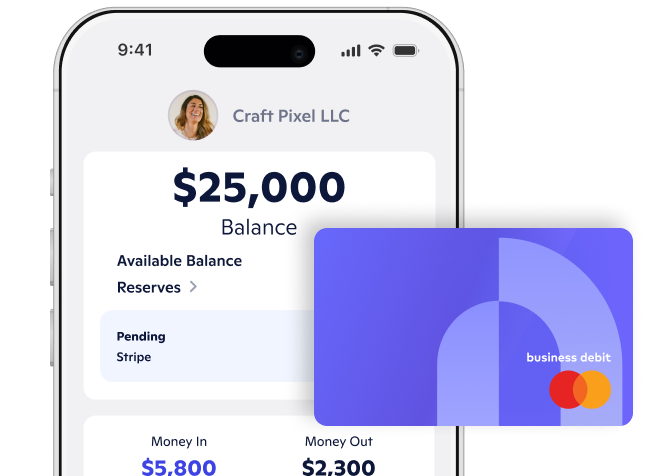
o you think you have what it takes to be an entrepreneur? You might. For the ambitious, the label “entrepreneur” is a dream goal, especially with the associated reputation of success and achievement. Is this the destiny of every business dweller that wants more than just the 9 to 5 job? Absolutely not. The entrepreneur must establish how his or her priorities and business aspirations can combine to create a new concept with lucrative potential.
If your end goal is completely monetary, entrepreneurship is probably not for you. The whole purpose of a startup is finding a gap in the market while maintaining awareness of the current global demands — not just at the business level. But who are we to judge? The beauty of entrepreneurship is that it can combine external factors unknown to business with pre-existing models to foster innovation. The responsibilities that lie behind the title “entrepreneur” set some parameters that separate those who are ready for the challenge from those who are not:
1. You have to want it
If leaving your footprint in the business world involves creating something that you don’t absolutely love, don’t do it. Instead, you have to create a business that serves as your motivation in it itself. Small Business Trends states that, out of the leading causes of startup failures, incompetence makes up 46%. This statistic can indicate a number of things, but ultimately points to a lackluster attitude from the entrepreneur who started it all. So, before you launch your startup, figure out what it is that you love (and what you don’t) so you can build a business you truly care about.
2. Think business — because that’s it
Whatever you are seeking to tackle, there must be some financial planning involved — terms such as estimated costs, funding, and projected revenue must be part of your vocabulary. The foundation of your startup should also include emergency funds and preemptive market research, keeping in mind that startups often have sporadic earnings. Financial planning is not an exciting part of the startup, but investing aggressively in overhead at the start is dangerous, given that profit margins will be razor thin and too much spending in the wrong places spells imminent doom.
3. Experience is key
Pursuing an enterprising startup requires experience. The field that you want to enter must be one you are very familiar with (unless you’re Elon Musk and go into the aerospace industry). The ability to identify opportunities and anticipate threats is what keeps entrepreneurs in the game. Your experience enables you to recognize competition, create a cutting-edge counter-offer in the market, and remain ahead at all times by forecasting future trends. Whether you realize it or not, your personal abilities combine with your previous experiences to create expertise, which is one of the major strengths of a successful entrepreneur.
4. Get by with a little help from your friends
Relationships that matter to you “bridge” the startup rift of investing time to create connections and support, which works at both a personal and professional level, for you and your startup. For the professional, find people that excel in the areas in which you are less experienced. In the vast realm of business, having a solid network makes a world of a difference. Connect with those who have reached your dream goals or want to achieve their goals as badly as you do. On a personal level, root out the positive and negative influences, deciding which to keep and which to discard. Your friends and family who want you to succeed will give you the support and the criticism you need. It will not benefit you to try to connect all dots and bridge all gaps by yourself — you can always rely on the people you trust.
5. Comfort is NOT a good sign
Leaving a job with a steady income to pursue your dreams or putting all your savings into one project is nothing short of stepping out of a comfort zone. This is a good thing. It means that you are confident and willing to take risks to follow your dreams. Ambiguity surrounds entrepreneurship on all sides. You could have the most foolproof business plan and create a hundred backups in case of emergency and still be caught off guard. Working long hours, redrafting essentials, and starting concepts all over again are a few of the many frequent hustles that come with the creation a thriving business. On the other hand, a feeling of complacency is never a good sign. You may have secured an investment after your seed pitch that has given you some breathing space. Don’t let that (or anything else) be an invitation to sit back and relax. As Jim Rohn says, “Either you run the day, or the day runs you.” Keep making plans until a hectic workload becomes your natural habitat.
6. Tie your strategy to an original concept
The recipe for success always contains a pinch of originality. Starting your business based off of someone else’s is not only irresponsibly lazy, but also prone to failure. Instead of introducing an innovative solution to an existing problem, you are selfishly using someone else’s idea as your own to make a profit. When starting a business, there is no point in relying on someone else’s creativity, as it is tailored to their own way of thinking and problem-solving. Moreover, the whole point of setting out into the unknown realm of founding a startup is to create, not to copy.
Be original. It goes without saying that you should not copy successful business strategies from others. Instead, you must adapt ideas and strategies to the way you envision your startup, so that they include your personal chemistry and originality as you create your own unique business.
%201.png)
.png)




